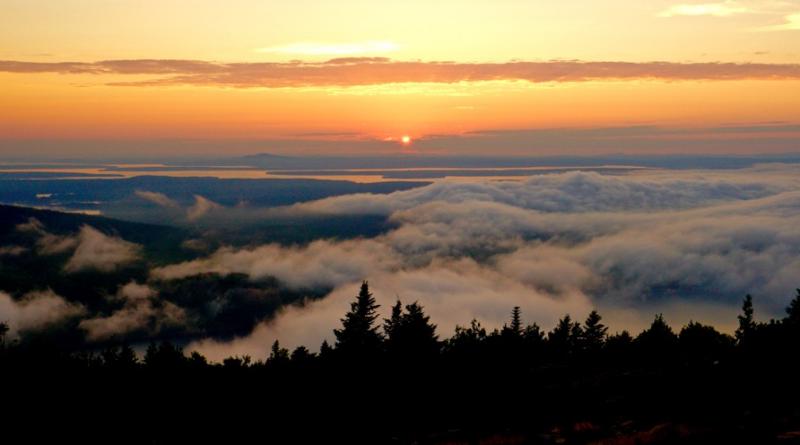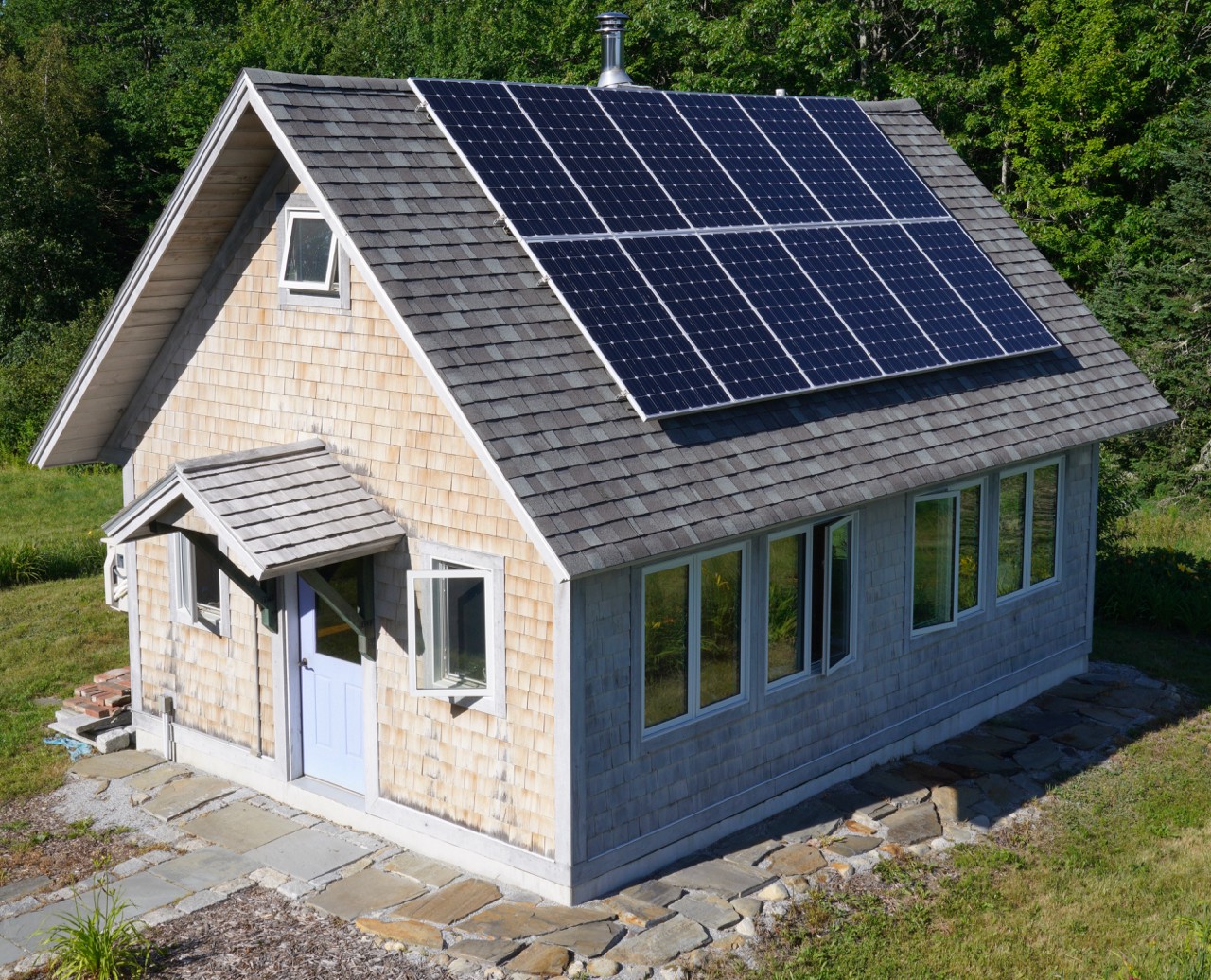Αντί να προσμένουμε κλιματικούς ήρωες, ας κοιταχτούμε στον καθρέπτη.

Instead of Waiting for Climate Heroes, Let’s Look in the Mirror
Despite mounting evidence and countless warnings, politicians around the world have still failed to address climate change. We need stronger climate leadership, to be sure, but instead of waiting for heroes to save us, maybe we can all help out and do some of the work ourselves?
we’ve known about climate change and the greenhouse effect for a very long time.
And yet, despite decades of scientific research, reports, and warnings confirming the urgency of climate change, too many of our political leaders have done too little to actually solve the problem. Of course, there are some great exceptions: Governor Jerry Brown, former Governor Arnold Schwarzenegger, former New York City Mayor Michael Bloomberg, President Barack Obama, and Pope Francis have all done much to tackle climate change, often while facing strong opposition.
But it’s not enough. Greenhouse gas levels continue to climb, the planet continues to warm, and we continue to wait for solutions. The world’s political leadership, on balance, has been too timid, too slow, and too disconnected from the science to adequately address climate change. And we’re left waiting, again, hoping for new leaders to arrive on the scene — leaders who will finally tackle the climate challenge. We continue to think this time, this time, is the time we’ll get leaders who will address it.
I’m tired of waiting. And so are many others.
The scientific community has done its job, many times over, providing detailed, careful warnings about climate change to our national leaders since the 1970s and 80s. And we have waited decades for adequate action, with not enough to show for it.
So it’s very encouraging that others are stepping up to provide leadership on climate change. We’re starting to see innovative solutions from business, non-profits, philanthropy, and the military. There are exciting developments coming from Silicon Valley, the Pentagon, Fortune 500 companies, and dozens of local communities around the country.
But can we find additional opportunities for climate leadership?
Yes. Yes, we can.
More business leaders are stepping up, and more cities and states are taking the lead. And I’m convinced we can all do more to address climate change — especially through the efforts of regular folks, people just like you and me. We can all make a difference — in our personal lives, our workplaces and businesses, our schools, and our communities. A big difference, it turns out. And maybe it will be enough to change the future.
We simply need to reduce emissions as much as we can, wherever we can, as soon as we can. Period.
When it comes to climate change, we need to reduce greenhouse gas emissions, across the board, as quickly as possible. It doesn’t matter who does it — or whether it’s done through a national policy effort, a local initiative, or millions of us working at home. The atmosphere doesn’t care. We simply need to reduce emissions as much as we can, wherever we can, as soon as we can. Period.
And millions of everyday people, doing their part, can make a significant difference.
For those who doubt that personal climate actions really matter, I ask this: How do you think emissions actually go down? Even the most ambitious climate policies — which are just pieces of paper at first — need to be implemented in the real world. A giant share of our emissions come from homes and cars, and it is ultimately necessary for us to lower emissions where they happen — in furnaces and tailpipes, not in conference rooms or Congress. So why not skip a step, and do some of it now?
Instead of waiting for some new political “climate hero”, or some miraculous new climate policy, to arrive and singlehandedly solve the problem, let’s see what the rest of us can do right now.
In fact, I think the climate heroes we are looking for are already here. Just look in the mirror.
How can regular folks take control of the situation, and substantially reduce greenhouse gas emissions in our daily lives — emissions that come from our direct, household use of electricity, natural gas, heating oil, and gasoline? It turns out that much of it is pretty straightforward, and there are opportunities to quickly reduce emissions by 10%, 20%, and maybe as much as 50% in many households. And most of these efforts can save us money and make our lives better. We just need to roll up our sleeves and get to work.
To get started, here are a few things to keep in mind:
Addressing climate change isn’t a sacrifice. In fact, it can greatly improvethe quality of our lives. Americans are not happier, healthier, wealthier, or more secure because we waste more energy than other people around the world. In fact, we can enjoy our lives more as we use less energy — at least if we’re smart about it. For example, we can trade in expensive, fuel-guzzling, hard-to-park SUVs for sleek new hybrids or electric cars, which are cheaper to run, more fun to drive, and far easier to park. And we can enjoy our homesmore if they are less drafty, more comfortable, and less expensive to operate. Plus, if we save money on energy and water bills, we have more money for other, more important things. Finally, of course, we all benefit from cleaner air, fewer asthma cases, greatly reduced risk of oil spills, and lower international tensions over energy.
Let’s be wise with our use of energy and food. Our country is still incrediblyinefficient. We can find much better ways to heat and light our living spaces, to get around town, and to enjoy delicious food — all while saving money, improving our quality of life, and greatly reducing our impact on the planet. We can use programmable thermostats to control our furnaces and air conditioners, keeping us comfortable while saving huge amounts of energy. We can tighten up our doors and windows, and insulate our buildings. We can wrap our water heaters, turn them down to 120˚F, and use low-flow showerheads. We can change our old light bulbs to efficient LEDs, which last far longer and save tremendous amounts of money and energy. We can buy more efficient appliances, especially refrigerators and washing machines, when the time comes. We can drive far more efficient vehicles, and try to drive them a little less. And we can waste less food, and cut down on beef. Done right, all of these steps save us money, help address climate change, and improve our quality of life.
Next, we can switch our energy and food towards more renewable and sustainable sources. Once we pick the low-hanging fruits of energy and resource efficiency, it makes sense to switch our energy sources and food supplies to local and more sustainable sources. For example, we may be able to purchase — for a very small monthly fee — local solar- and wind-generated electricity for your apartment or home. We can also find more sustainable kinds of food. Or maybe we can go further and install solar panels on our roofs, which can power our homes, or lease an electric car. All of these investments cost money, at first, but they often have great financial payoffs in the long run. In the meantime, these actions have local economic benefits, and help keep money and jobs in our community.
Pick the low hanging fruit. Doing just a few things give us some very big wins in reducing household greenhouse gas emissions — programmable thermostats, tightening up doors and windows, insulating our attics and basements, widespread LED lighting, updated refrigerators and washing machines, much more efficient cars, wasting less food, and reducing beef consumption. These are the low hanging fruits, and they are just waiting to be picked. What’s stopping us?
Do what you can, when you can. Some of these steps cost nothing, or very little, and have immediate financial benefits. Start there. But other steps take money and time. So pace yourself. Do what you can, when you can do it. I try to do one or two new things each season to lower my emissions, and I try to take advantage of opportunities that arise — like when it’s time to buy a new refrigerator, or trade in a car, or fix something in my house.

Naturally, we can only do so much in our homes and cars. Other emissions happen outside the control of everyday Americans. We need good policy, good technologies, good market tools, and good leadership to do the rest.
But we don’t have all of those things right now. And waiting for changes in political leadership is wasting time we don’t have. So why don’t we get to work at the personal and household level now, and help buy the time and build the momentum we need to mount more effective policy responses in the future? Strong political leadership on climate change is definitely needed, but in the meantime the rest of us can make a difference too.
And, finally, I think a real democracy requires that we all participate in making our country, and our world, a better place. Climate change demands more of our leadership, to be sure, but it also demands more of us too. So maybe it’s time we all get to work. The politicians can join us later, following our lead for a change.
Or maybe that’s the way it’s always been.
Dr. Jonathan Foley (@GlobalEcoGuy) is a global environmental scientist, sustainability advisor, author, and public speaker. These views are his own
7 August 2016
Jonathan Foley


